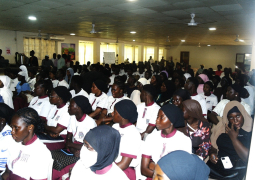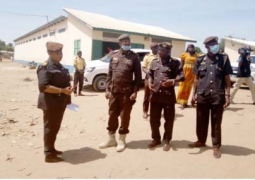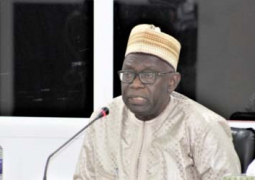
Louis Moses Mendy, who was speaking during the validation workshop on The Gambia’s Education Service Delivery Indicators 2020 Draft Report, said: “The reason the study is being commissioned is to look at holistic views of what we need as a sector in order to be able to work towards addressing many others but more importantly quality education.”
Gambia, he stated, is the second country in the sub-region to be able to commission this study, saying: “Today’s event is one of the most important events of the transformation agenda of the Education Ministry.”
“I have gone through the report and you will find it very interesting and revealing. We have done good work and yet more work needs to be done.”
“Our objective is to restore quality education in the country, hence we must all commit ourselves to work towards restoring that glory. I want to use this opportunity to challenge my fellow public servants because oftentimes, we want to take our children to private schools. However, the question is why did you want to take your child or children to private school and not the public schools? This is because you don’t have trust in the public schools and institutions.”
“Therefore, it’s our collective responsibility to work towards making sure that our public institutions are trusted. This can be done by providing all the required resources and things in order to be able to have the quality education that we all yearn for.”
Education, he continues, is one of the goals that should not be compromised.
“Whatever is finalised today would be a representation of both the sector and the country. Therefore, your sincere inputs into that and your maximum participation into the entire process is very important so that once the process is finalised, it becomes a force to reckon with.”
“You will realise and agree that in the recent past, the ministry has engaged in ensuring that we look at something that the population of the country has always cried for, which is quality education.”
Sohna Foon-Chorr, director of Planning at the Ministry of Basic and Secondary Education, said: “Today’s gathering is to validate the education service delivery indicators for 2020. This study provides stakeholders the set of metrics for benchmarking in service delivery indicators in the education sector of The Gambia.”
These indicators, she added, measure the quality of service delivery in the education sector, claiming that it will also help track the progress as well as identify the gaps across the country.
The SDI instrument used by the World Bank in other countries, she went on, was customised and domesticated, taking into consideration the national context.
Ebrima M. S. Njie, the national coordinator of the Education Research Network for West and Central Africa (ERNWACA), said the service delivery indicators study provides a set of metrics for providing service delivery performance in education.
He maintained that with these indicators, one would be able to identify gaps, track and progress overtime across the country, adding that The Gambia is the latest country to conduct the study.
“The implementation period was from October to December 2020. This involves supervisors and enumerator trainings, testing of the equipment and also data collections.”
“Samples of 180 lower basic schools which had grade four were in the sample of all lower basic schools in the country. The sample also included all types of schools both public and private and Madrassas.”
“Generally, the study provides information on teachers' efforts, knowledge and ability, pupils knowledge and ability and also information on key inputs such as text books, basic teaching equipment and infrastructure.”





